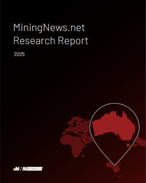This article is 15 years old. Images might not display.
Market watchers from the National Australia Bank said in a commodities note that this year Rio Tinto has been at the forefront of iron ore pricing talks, with the benchmark price it set in May with Japanese mill Nippon Steel setting the precedent for non-Chinese and European iron prices.
But the Chinese Iron and Steel Association (CISA) has been pushing for bigger price cuts, although as NAB pointed out iron ore spot prices into China have risen above the benchmark prices.
Complicating the negotiations has been the Stern Hu affair and, before that, the collapse of the Chinalco-Rio deal.
“Given the many twists and turns the negotiations with CISA have taken so far, and the limited information flow from China, predicting the outcome of the talks with any degree of confidence is impossible,” NAB said.
However, the bank said a number of likely scenarios could play out.
The first scenario, and one which seems increasingly unlikely, is that CISA and Rio will come to a “mutually beneficial” agreement on the pricing.
This may involve CISA accepting the already agreed-to benchmark but perhaps with a proviso for re-negotiating the prices biannually.
Also possible is that Brazilian major Vale may sign with CISA at a lower price which would put pressure on Australian miners to lower their prices further.
NAB also believes it is possible the benchmark system could completely break down and potentially go towards an index system like that promoted by BHP Billiton.
“So far, however, Asian steelmakers have displayed aversion to such a system for fear of a volatile cost structure for industry,” the bank added.
BHP announced yesterday that some 47% of its iron ore sales had yet to be priced, suggesting that Chinese mills continued to hold out for bigger cuts.
The miner also said it would sell around 30% of its iron ore through a combination of contract pricing, spot prices and index based prices.
The company’s announcement is the clearest indication yet that the benchmark pricing system may come to an end sooner, rather than later, according to analysts from London-based Fairfax.
Analysts from the brokerage said while China could be negotiating with Vale, it believed all three companies were unpopular in the Asian nation after last year’s negotiations.
“Chinese companies are reported to have lost some $US20 billion last year in iron ore trading,” the brokerage said.
“All three companies are in danger of being seen as enemies of the state as the Chinese seem to be taking this round of negotiations particularly personally.”
Fairfax said the iron ore contract was also “not just a question of a price negotiation any more but it has become an issue of national standing”
























